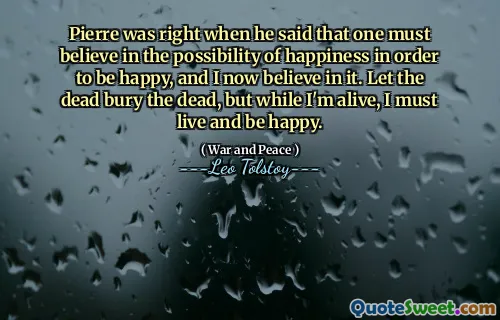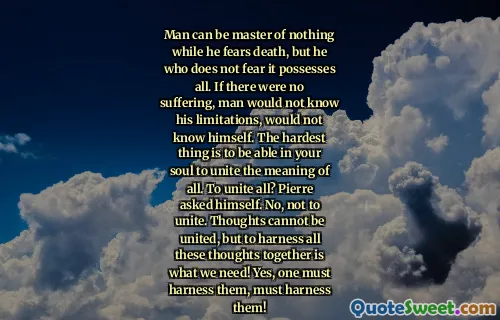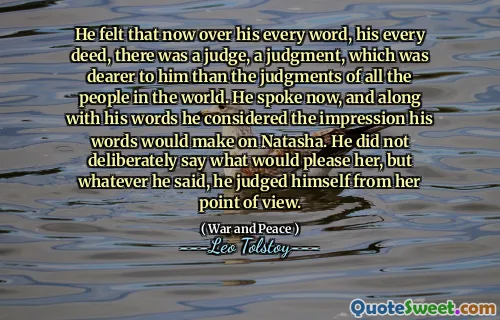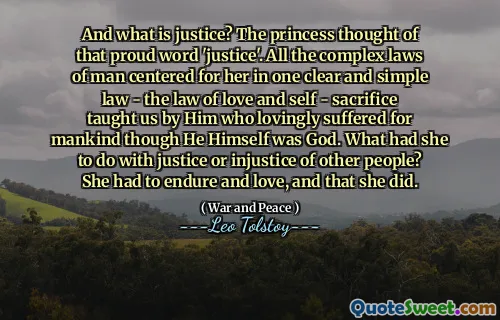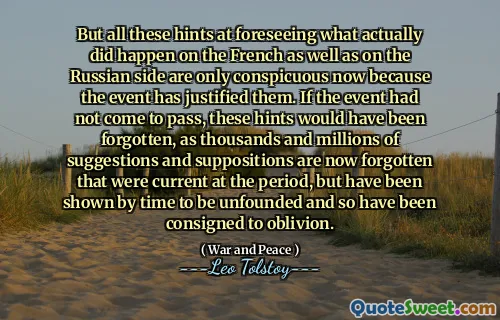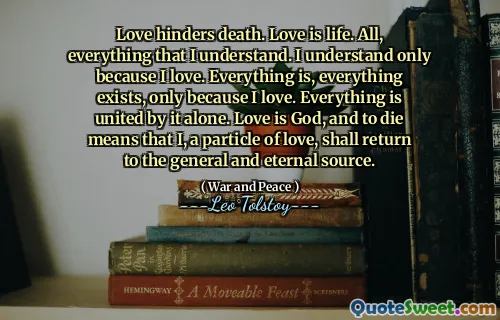
But all these hints at foreseeing what actually did happen on the French as well as on the Russian side are only conspicuous now because the event has justified them. If the event had not come to pass, these hints would have been forgotten, as thousands and millions of suggestions and suppositions are now forgotten that were current at the period, but have been shown by time to be unfounded and so have been consigned to oblivion.
[Markdown format] This quote emphasizes the intriguing nature of hindsight and the way it influences our perception of predictions and foresight. The main idea suggests that in the heat of the moment—during turbulent or uncertain periods—many predictions, suggestions, and assumptions are made. However, it is only after the events unfold that we are able to see which of these predictions were accurate. The quote highlights a common human tendency to evaluate past predictions with the benefit of knowledge that was not available in real-time.
The reflection here resonates deeply with the idea that uncertainty often guides our actions and opinions during significant events such as war, political upheaval, or social change. The realization that many predictions were either confirmed or proven wrong only after the outcome is known illustrates the limitations of foresight and the bias of retrospective clarity. Many suggestions and hypothesis tend to fade into obscurity if they are proven wrong, yet some predictions stand out precisely because they are later validated.
This understanding fosters a sense of humility in decision-making processes. It acknowledges the complexity and unpredictability inherent in human affairs and cautions us against overconfidence in our predictive abilities. The quote also invites a broader contemplation on history and how we interpret it. It reminds us to question and critically analyze the predictions and judgments made before an event, recognizing that only time and outcomes reveal their true accuracy and value.
Ultimately, it underscores the importance of patience and objectivity when evaluating predictions and the importance of learning from the misjudgments of the past—debunking the false certainty that often accompanies hindsight.
—( War and Peace ), —Leo Tolstoy—
